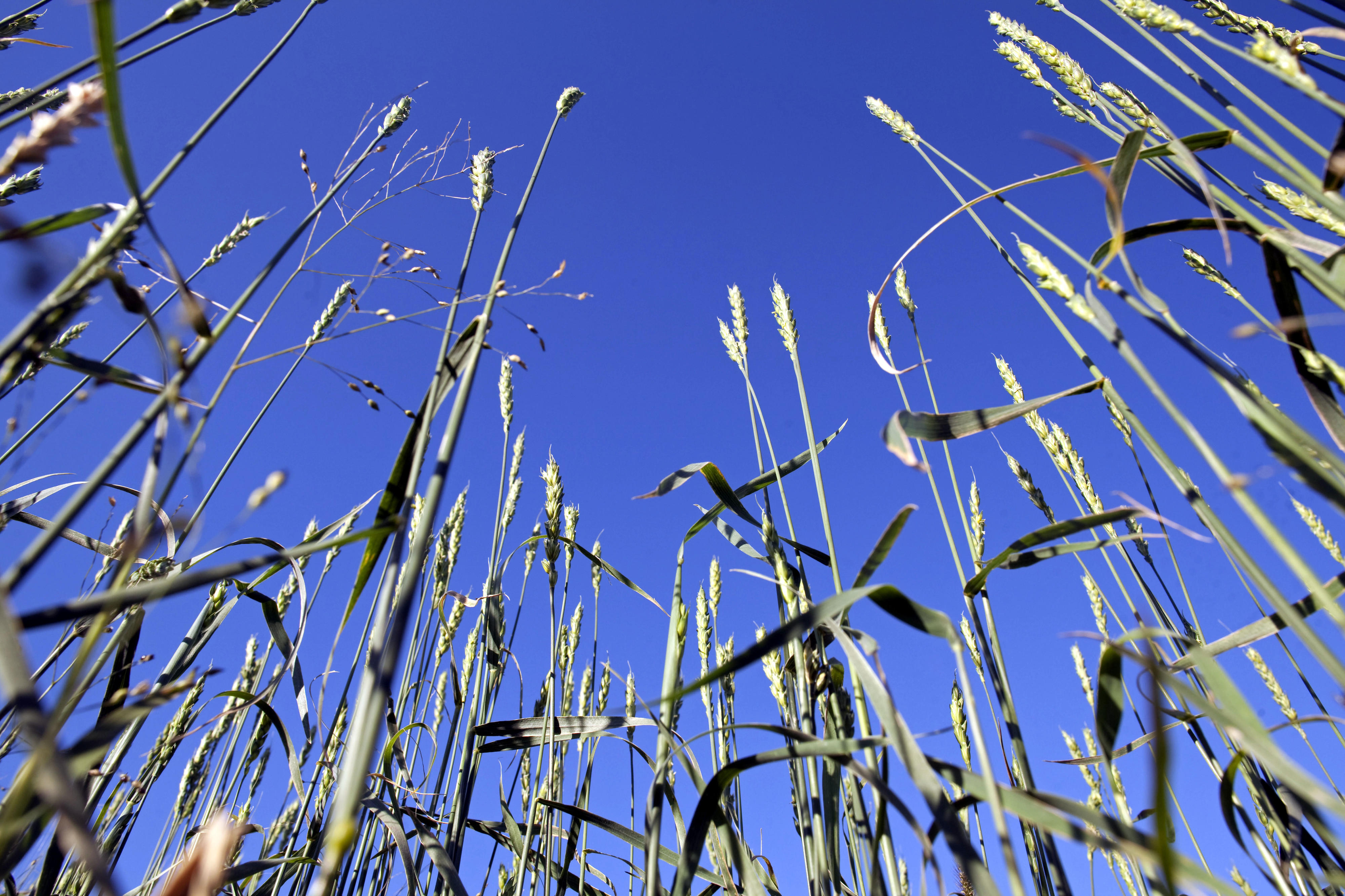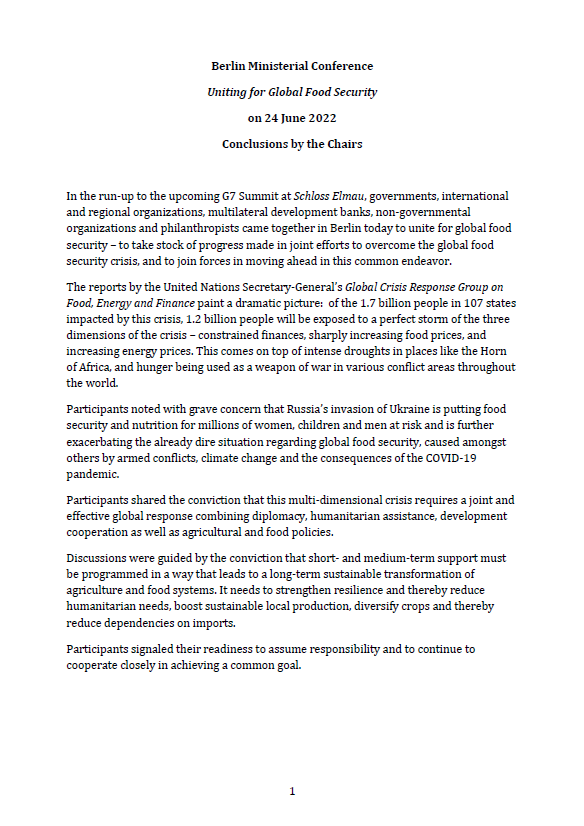Priorities of the German G7 Presidency Making agri-food systems sustainable, resilient and just
Wheat field in northern Mongolia
For years now, global figures for hunger and malnutrition have been on the rise again. The social, economic and environmental impacts of the pandemic, of global climate change and of the Russian war of aggression in Ukraine have exacerbated the situation still further.
Sustainable, resilient and just agri-food systems are a prerequisite for a better future for all. The situation on regional and global agricultural markets, which was already strained, has been getting even worse due to the impacts of multiple crises, and it is also having drastic repercussions on the countries of the Global South. That is why the G7 countries are accelerating the implementation of their measures for achieving the 2015 G7 goal of lifting 500 million people out of hunger and malnutrition by 2030. Furthermore, the BMZ wants to work with the other G7 countries to support partner countries in transforming their agri-food systems so that they are resilient, sustainable and just, thereby also strengthening their resilience to future crises.
At the initiative of German Development Minister Svenja Schulze, the G7 Development Ministers have launched a Global Alliance for Food Security. The aim of this Alliance is to secure additional funding and ensure close coordination of food security measures.

